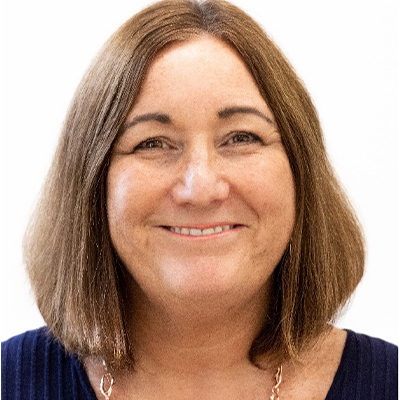
Case Study
Joanne Terry-Marchant

Hi there, I’m Joanne.
Principal, Highlands College
Born into a working-class Jersey family, Jo Terry-Marchant attended St. Helier Girls School before moving on to Hautlieu as part of the 14 plus system to study for O-Level and A-Levels. Initially having an interest in journalism, it was at Hautlieu where Jo first realised she may have a career in teaching after a tutor offered her the opportunity to lead a class.
After working in finance and travelling/volunteering overseas, Jo then moved to the London to undertake a degree, before completing a Post-Graduate Certificate in Education through London University. This led to multiple teaching jobs, including Seven Kings High School which was ranked top 100 comprehensive school where two thirds of the pupils spoke English as a second language. Working in London boroughs enabled her to gain exposure to government educational policy development in the UK.
Returning to Jersey, Jo took up a position at Grainville School as Head of the English Department. Passionate about removing barriers in education, Jo worked on several initiatives including liaising with primary schools to make transition into secondary education easier for pupils. A post then became available at Highlands College, which was appealing due to the diversity of individuals attending the college. Since joining Highlands, Jo was promoted to the Senior Leadership Team and was Deputy Principal and in April 2020 was appointed Principal. Jo now oversees a college where more than 5,000 students enrol each year and 200 full-time and 150 part-time staff are employed. As well as offering various vocational and technical courses, Highlands also offers Degree level study in partnership with universities in the UK, including Plymouth University, London South Bank University and Sussex University.
As someone who has achieved social mobility herself, Jo is in a unique position to provide a perspective on social mobility in Jersey. Jo knows from decades of published research that socio-economic barriers have the biggest impact on achievement and students reaching their potential in education, therefore aspects such as targeted funding is extremely important. A suggested area for improvement could be to ensure all educational funding requests are impacted assessed to focus on the outcomes of the funding and the value added to students whatever their age and whatever their starting points. Removing educational barriers is also critical and this was one of the drivers for setting up an English and Maths retake programme at Highlands several years ago. More recently, the entry requirements at Highlands have been reviewed and standardised to ensure that students can access the right levels of education earlier and are stretched and challenge.
Lastly, inclusion is vital; it means changing the way that you teach to address personal needs and motivations of all the students in your care. This relates to both the balance of academic versus vocational learning, where pathways need to be extended for students to access learning which is diverse and enriching. The mission statement of Highlands College is “Transforming Lives” and they are certainly focussing on this, by utilising technology and ensuring that the individual becomes the heart of the learning process. This results in a more personalised learning experience which is important, because as Jo states it “isn’t just about acquiring qualifications, it’s about acquiring lifelong skills”.